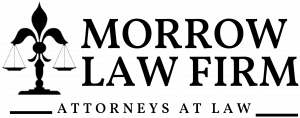Understanding Comparative Fault in Louisiana Personal Injury Claims
Louisiana follows a pure comparative fault system. This means that an injured party may recover damages even if found to be 99% at fault for the incident. However, the total amount of compensation is reduced by the percentage of fault assigned to the injured party. For example, if a person is awarded $100,000 in damages but is determined to be 30% at fault, the actual recovery would be limited to $70,000.
This framework often leads to complex legal evaluations, as determining fault is rarely a clear-cut matter. In many personal injury cases—especially those involving motor vehicle collisions, workplace incidents, or premises liability—multiple parties may share responsibility. Insurance adjusters and legal representatives must evaluate the actions of all parties involved, including whether reasonable care was taken, whether any safety regulations were violated, and how the sequence of events contributed to the outcome.
William P. Morrow, an attorney with Morrow Law Firm in Opelousas, Louisiana, emphasizes the importance of understanding how comparative fault influences both litigation and settlement decisions.
“Many clients assume that being partially at fault disqualifies them from any kind of compensation,” said Morrow. “That’s simply not the case under Louisiana law. Comparative fault allows for a more balanced approach—recognizing that accidents are often the result of a combination of actions and conditions.”
In practice, determining fault can involve multiple layers of investigation. Police reports, witness statements, video surveillance, and expert testimony all contribute to assessing liability. Insurance companies often conduct their own reviews, but these assessments may differ significantly from the findings presented in court.
Comparative fault can arise in various scenarios, including:
A driver rear-ends another vehicle but alleges the lead vehicle had malfunctioning brake lights.
An employee slips on a wet floor at work but was running in a restricted area.
A pedestrian is struck by a car but was crossing outside of a designated crosswalk.
In each of these cases, courts and juries are asked to assign a percentage of fault to each party involved. These determinations directly affect the calculation of damages.
It is also important to distinguish between comparative fault and contributory negligence. Some states operate under contributory negligence rules, where any degree of fault bars recovery altogether. Louisiana’s approach is more lenient, allowing injured individuals to seek proportional compensation.
Morrow Law Firm, led by William P. Morrow, John Michael Morrow, Jr., and Stephen M. Morrow, frequently handles cases involving workplace injuries, where comparative fault becomes a central issue. In such cases, questions often arise around the use of safety equipment, adherence to protocols, and employer responsibility.
In workplace scenarios, Louisiana’s workers’ compensation laws may also intersect with fault-based personal injury claims, particularly when third parties are involved. Understanding how comparative fault applies in these dual-track cases is essential for achieving fair outcomes.
Litigation involving comparative fault requires careful strategy, as defendants often attempt to shift blame to reduce their own liability. This can result in prolonged negotiations or trials focused heavily on percentage assignments rather than the actual facts of the injury.
Evidence is critical. Timely documentation, medical records, accident reconstruction, and detailed timelines all contribute to building a case that accurately reflects the role of each party involved. Legal representatives must work to present a comprehensive picture of events in order to limit the client’s attributed fault and maximize potential recovery.
From a legal standpoint, comparative fault underscores the necessity of investigating all aspects of an incident—not just who caused it, but how each party’s actions influenced the result. This approach promotes accountability while still allowing those affected to seek compensation for medical costs, lost wages, and other damages.
The Morrow Law Firm continues to advise clients across Louisiana on how partial fault may impact a case and the importance of gathering detailed evidence to support claims. The firm remains focused on addressing legal matters involving injury and liability through careful analysis and procedural guidance.
Morgan Thomas
Rhino Digital, LLC
+1 504-875-5036
email us here
Visit us on social media:
Facebook
Legal Disclaimer:
EIN Presswire provides this news content "as is" without warranty of any kind. We do not accept any responsibility or liability for the accuracy, content, images, videos, licenses, completeness, legality, or reliability of the information contained in this article. If you have any complaints or copyright issues related to this article, kindly contact the author above.
Breast Cancer Epidemiology Report | In-Market Drugs, Treatment, Trends, Rising Incidence & Prevalence 2025-2035
Green Carpet’s Cleaning Shares Best Practices for Carpet Cleaning During Allergy Season
Former Delilah’s Den Nightclub in Atlantic City Hits Auction Block as CRDA Eyes Revitalization
Więcej ważnych informacji
 Jedynka Newserii
Jedynka Newserii

 Jedynka Newserii
Jedynka Newserii

Handel

Komisja Europejska chce wprowadzić ujednolicone przepisy dotyczące wyrobów tytoniowych. Europosłowie mówią o kolejnej nadregulacji
Ministerstwo Zdrowia opracowało nowy projekt przepisów wprowadzających kolejne zakazy dotyczące wyrobów tytoniowych – całkowitą eliminację e-papierosów oraz zakaz aromatów w woreczkach nikotynowych. Najprawdopodobniej w ciągu kolejnych dwóch–trzech lat Polska będzie musiała implementować nową dyrektywę dotyczącą wszystkich produktów tytoniowych, nad którym niebawem ma rozpocząć prace Komisja Europejska. Europosłowie mówią o ryzyku chaosu legislacyjnego, nadregulacji i wskazują na zagrożenia związane z proponowaną podwyżką akcyzy.
Konsument
Za trzy miesiące ruszy w Polsce system kaucyjny. Wątpliwości budzą kwestie rozliczeń i podatków

Zaledwie trzy miesiące zostały do startu systemu kaucyjnego w Polsce. Kaucje obejmą szklane i plastikowe butelki oraz puszki z napojami. To duża zmiana dla producentów napojów, sklepów i konsumentów oraz pośredniczących w zbiórce operatorów systemów kaucyjnego. Na razie przepisy są na tyle niedoprecyzowane, że budzą wiele wątpliwości w kwestii rozliczania podatków czy rozliczeń z operatorami. Producenci będą musieli płacić podatek od niezwróconych butelek, co zwiększy ich koszty.
Transport
Rośnie skala agresji na polskich drogach. Problemem jest nie tylko nadmierna prędkość, ale też jazda na zderzaku

Za kilka dni zaczynają się wakacje, czyli statystycznie najniebezpieczniejszy czas na drogach. Wśród głównych przyczyn takich zdarzeń na prostych odcinkach drogi są nadmierna prędkość i jazda na zderzaku. Zarządca autostrady A4 Katowice–Kraków w ramach kampanii „Nie zderzakuj. Posłuchaj. Jedź bezpiecznie” zwraca uwagę na zjawisko agresji na polskich drogach i przypomina, że bezpieczeństwo zaczyna się od osobistych decyzji kierowcy.
Partner serwisu
Szkolenia

Akademia Newserii
Akademia Newserii to projekt, w ramach którego najlepsi polscy dziennikarze biznesowi, giełdowi oraz lifestylowi, a także szkoleniowcy z wieloletnim doświadczeniem dzielą się swoją wiedzą nt. pracy z mediami.











.gif)

 |
| |
| |
|